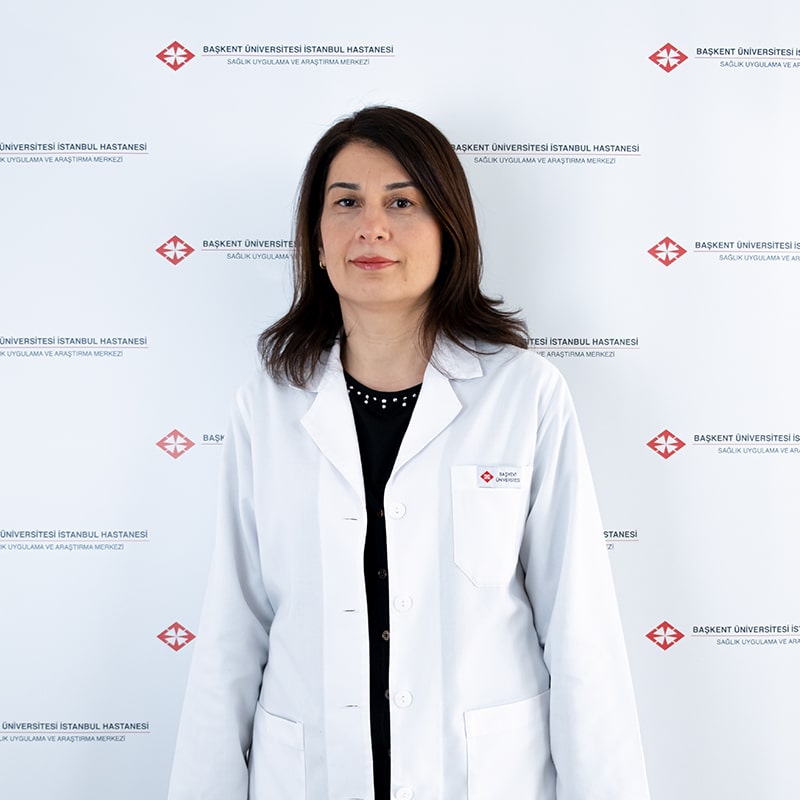
Overview
Most endocrinology and metabolic diseases require ambulatory examination, treatment and follow-up. Our outpatient clinics are organized for this purpose and they are composed of General Endocrinology, Thyroid, Diabetes, Obesity, Lipid Metabolism, Hypertension, Pituitary Gland, Adrenal Gland, Metabolic Bone Diseases and Osteoporosis outpatient clinics.
Diabetes is the most common endocrinological disorder. In our department, our patients are provided with all treatments modalities that are globally used to regulate blood glucose and prevent complications. Diabetes-related eye, kidney and foot problems are treated in cooperation with the relevant departments. Gestational diabetes is closely monitored. For nutrition education; diabetes education nurse and dieticians actively participate in the treatment of patients.
Thyroid diseases, such as hypothyroidism, hyperthyroidism, nodular goiter and thyroid cancer, are evaluated in detail and thyroid ultrasonography, aspiration biopsy or other treatments are offered. If necessary, radioactive iodine treatment is prescribed in collaboration with the Nuclear Medicine Department.
Recently, some detailed studies are conducted and novel treatments are used for obesity which has become a major social problem. Body fat distribution is analyzed in detail using state-of-the art devices. Close supervision by physicians and dieticians ensures long-term follow-up and drug treatment, if necessary. Patients are also consulted with General Surgery Department for obesity surgery, whenever necessary.
All the necessary tests for the diagnosis and treatment of osteoporosis are managed by the doctors of the endocrinology department. Other metabolic bone diseases and disorders of calcium metabolism (such as osteomalacia, vitamin D deficiency and hyperparathyroidism etc) are dealt by the endocrinology clinic.
Disorders of lipid metabolism (dyslipidemia) and cholesterol are other common metabolic problems. Elevated LDL cholesterol or triglyceride and low HDL cholesterol may be due to genetic, acquired or endocrinological disorders. These conditions may increase the risk of heart disease. Dyslipidemias are treated successfully through detailed investigations and treatments in our department.
Pituitary gland diseases are rare but they may cause serious problems. Treatment is usually possible if the diagnosis is made early and appropriately. Hormone-producing tumors of the pituitary (acromegaly, cushing, prolactinoma, etc.) cause important health problems. The insufficient functioning of pituitary gland due to different reasons affects the daily life. All these problems are examined in detail, provocation or suppression tests are performed and they can be successfully treated in our department. If necessary, Department of Neurosurgery is contacted for surgical treatment.
Excessive functioning of the adrenal gland may cause hypertension (high blood pressure). Poor functioning may also lead to a vital problem. These conditions and adrenal tumors are treated and followed up in the endocrinology department. The patients who require surgical treatment are closely monitored in the operation.







